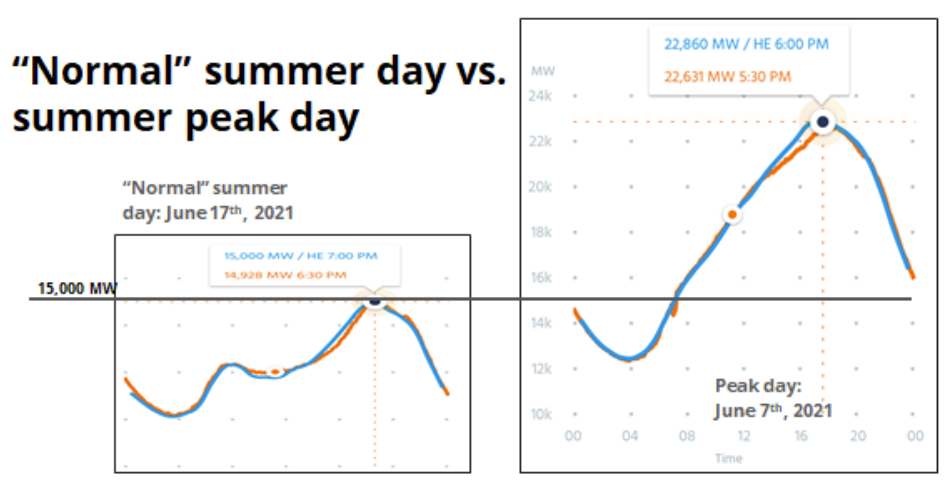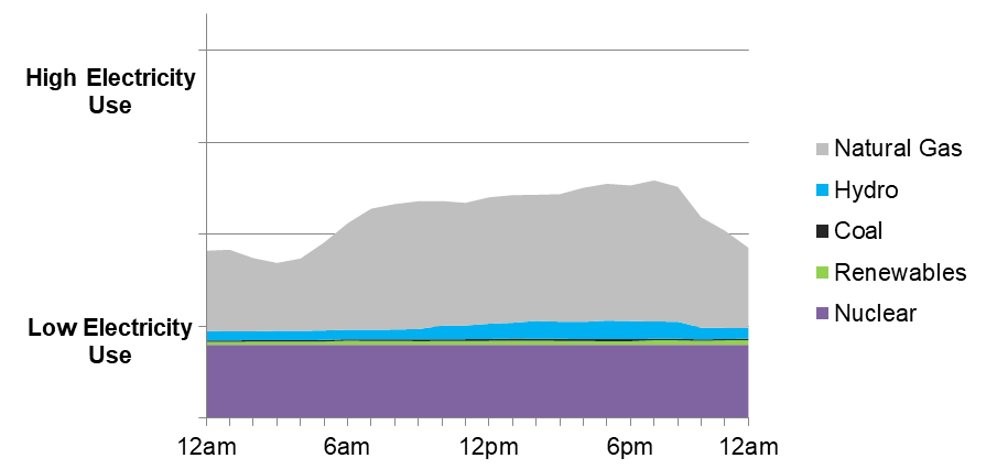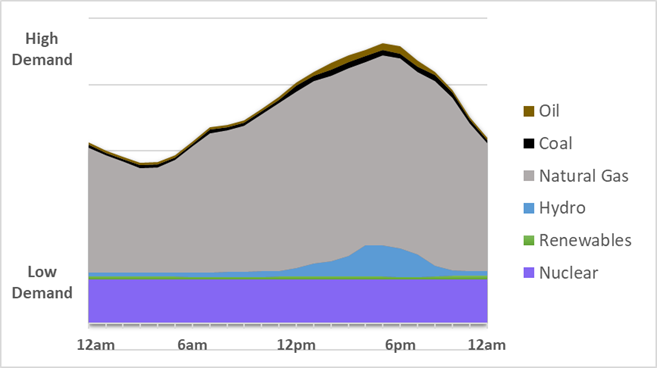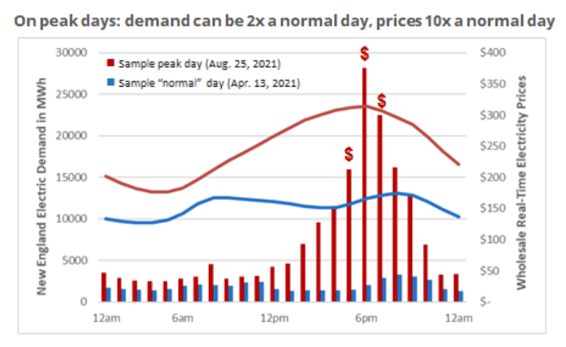Hot Days Ahead! Time To Shave The Peak.
As summer approaches, thousands of our followers prepare to “Shave the Peak.”
Shave the Peak is our program...

Starting Tuesday, July 19th, 2022
According to Accuweather, we're headed for a prolonged stretch of hot weather through July 31st. Over the next few days, you might hear from your local utility or our electric grid operator, ISO-New England, that our electricity system will be stressed. If you care about air quality and the cost of electricity, the next two weeks are a time to pay attention to when you're using energy. In this blog, we’ll explain how weather affects the power grid, and how we can collectively try to cope.
Peak days are days when New Englanders collectively use more electricity than normal. If you've been following our Shave the Peak program, then you know we tend to send out "peak alerts" when the thermometer crosses 90 degrees during a weekday. At that temperature, especially if it’s humid, demand on the power grid increases significantly, causing fossil fuel consumption, wholesale prices, and smog all to go way up. New England usually gets a handful of days like that, scattered around. Now, we'll show you why it's so important to do something about them.
The graphs below show how two days last June differed in terms of electricity demand in New England (all of the graphs show New England as a whole, not just our favorite states of Massachusetts and Rhode Island). The left is a relatively normal day, while the right is a peak-like day. See the difference in electricity use?

This next graph shows how our electricity needs were met on a normal day, September 7, 2017 (since then we’ve added a lot more solar and wind to the New England grid).

This graph shows how New England’s electricity mix was on August 12, 2021, a high demand day. As you can see, it required a lot more natural gas, but also coal and oil.

All that additional fossil fuel consumption increases greenhouse gas emissions, smog, and the price we pay for electricity. Oftentimes, when power demand is double the average day, wholesale power prices increase ten-fold. Eventually, we all pay for that.
A mild day in the spring or fall might result in New England’s highest point of demand being a collective 10,000 to 15,000 megawatts. But over the next couple of weeks, we will likely see demand exceed 22,000 megawatts.
That difference might not seem like much, but the effects are enormous.

If you are enrolled in our Shave the Peak program, we will text you a friendly reminder to do what you can to curtail energy consumption during peak hours, which are typically 5 - 8 p.m. on weekdays. The highest peak on a sunny day might be about 6 - 7 p.m, because we have a lot of solar on the grid nowadays which reduces the need for fossil fuels in the earlier hours, but our participants try to keep electricity use low before and after the highest peak, just in case.
Typically, if we receive information that the peak will occur on one particular day or two, we let participants know via text, email, and social media (Twitter and Facebook). But this alert is unique; the forecast is not currently calling for one or two days that might be brutal, like 95 or 100 degrees. We’re talking about two solid weeks in which the temperature will be between the high 80s and low 90s.
So, our message is this: Do what you can to reduce electricity usage from 5 - 8 p.m. every day (remember, if it’s sunny, think most about 6 - 7 p.m.) The most impactful thing you can do is reduce your need for AC.
Here are practical ways to "shave the peak" during those specific hours:
{Note: Our air would be cleaner and we would be paying a lot less for power if we shifted power use to off-peak hours on a year-round basis, but it’s especially important when the weather is this hot}.
Green Energy Consumers has been pushing the state governments to require the electric utilities to offer more robust programs to reward consumers financially for shaving the peak. Currently, Bay State utilities that administer Mass Save offer a “Connected Solutions” program. The same goes for Rhode Island Energy. Those programs are good, but not good enough.
What we need to better manage potential demand peaks are electricity modern (smart) electricity meters, time-of-use pricing, and financial incentives for people to shift their EV charging off-peak and to install battery systems. All those things reduce the need for the dirty and expensive “peaker plants” that run on expensive fossil fuels and cause peak to be so destructive.
Both Massachusetts and Rhode Island are moving in the direction, but far too slowly for our satisfaction. We’re engaged in dockets at the Mass. Department of Public Utilities and Rhode Island Commission on these issues.
One of the founders of Shave the Peak, Kai Salem, gave a webinar on the topic on June 13, 2022. Watch the recording below. And don't forget to sign up for peak alerts!

As summer approaches, thousands of our followers prepare to “Shave the Peak.”
Shave the Peak is our program...
During periods of extreme heat, higher electricity demand is met with dirty, inefficient fossil fuel electricity...
Comments